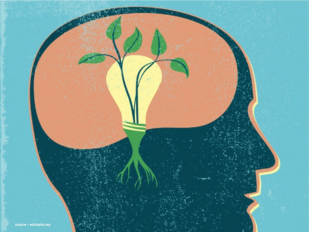
Kids can surprise us. They say cute and quirky things from the moment they learn to speak. They ask questions that catch us a bit off-guard and leave us scrambling for an adequate response. They are genuine, approaching life from a place of innocence and certainty that we, the adults in their lives, are there to accept them, guide them and help them as needed.
As children enter adolescence, moving quickly into their teen years, they are more reserved – at least when adults are present – and less willing to ask those questions and behave in those ways that are so endearing when they are younger.
The best thing that can be seen in schools is when adolescents don’t do what is expected – those times when we think they will shut down and they rise, times when they are expected to disengage only to lead the charge for a new idea or initiative. Experiences like these are quite simply jaw-dropping. What conditions allow this to happen? What circumstances allow kids to feel comfortable enough to take a risk, to dare to do something their peers may make fun of or laugh at? How do we create an environment that encourages them to put themselves out there, engaging in situations that are not always familiar and comfortable?
That is our charge as educators working with all children; it cannot be abandoned when the children are entering adolescence. They are kids trying to figure out their world, just like they did when they were younger. Our charge is to establish environments where kids can continue to surprise us, and where curiosity and wonder are the order of the day.

 As this school year gets underway, I have had the pleasure of working more closely with a few classrooms. This has meant everything from meeting about supporting students, to discussing potential field trips, to helping plan lessons. Though these are not my “typical” responsibilities as head of school, they are things I thoroughly enjoy. Getting closer to student learning is always interesting and energizing.
As this school year gets underway, I have had the pleasure of working more closely with a few classrooms. This has meant everything from meeting about supporting students, to discussing potential field trips, to helping plan lessons. Though these are not my “typical” responsibilities as head of school, they are things I thoroughly enjoy. Getting closer to student learning is always interesting and energizing. You might think of WMS as a small independent Montessori school. You might think that, because we end in sixth grade, our students don’t have access to the same breadth of knowledge of those schools that end in eighth or 12th grades. You might think we are only thinking of “little kid” concerns. You might be wrong.
You might think of WMS as a small independent Montessori school. You might think that, because we end in sixth grade, our students don’t have access to the same breadth of knowledge of those schools that end in eighth or 12th grades. You might think we are only thinking of “little kid” concerns. You might be wrong. 
 The past two weeks have brought time to reflect and catch up on some reading. As I’ve done so, I was moved by the statement above.
The past two weeks have brought time to reflect and catch up on some reading. As I’ve done so, I was moved by the statement above. 